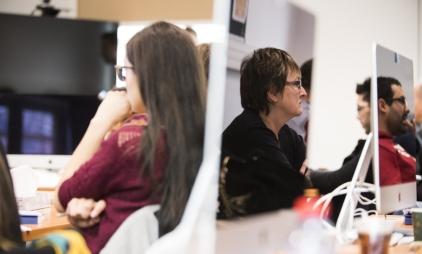The Institut Pasteur Charter for Open Access to Publications
The Institut Pasteur aims at reaching 100% of the year's publications in Open Access from 2021 onwards.
With the Charter for Open Access to publications, the Institut Pasteur requires their researchers to:
- publish in CC-BY and without embargo, either in a native Open Access journal or by applying the rights retention strategy
- deposit their publications in the HAL-Pasteur open archive
The Charter goes along with a practical guide to answer questions about Open Access and HAL.
The charter was developed as part of a project led by the CeRIS.
Contact: hal-pasteur@pasteur.fr
The Institut Pasteur's Open Science Monitor
According to this barometer, 90% of Pasteurian publications published in 2023 were open access in December 2024. In comparison, at the national level, 67% of French publications published in 2023 were in open access in 2024 (all fields).
Learn more
The cOAlition S and Plan S: new requirements from research funders
Launched in September 2018, cOAlition S brings together European (European Commission) and national funders (including ANR, the French National Research Agency). It counts many supporters, including the Wellcome Trust, the Gates Foundation and the WHO.
Its general principles are grouped in Plan S, which requires immediate open access to scientific publications (from 2021). To allow the reuse of these publications, they must be under a Creative Commons open license (CC-BY) and immediatly open (no embargoes are allowed). To meet these requirements, several options are available:
- Publication in Open Access journals or Open Access publishing platforms, in CC-BY ;
- Deposit of publications in open archives, in CC-BY and without embargo (this option requires the application of the Rights Retention Strategy).
National policy
In France, the National Research Agency (ANR), which is part of the cOAlition S, has required since 2019 that all publications resulting from the projects it funds be posted in HAL, the national open archive. In its 2022 Action Plan, ANR plans to implement the Rights Retention Strategy initiated by the cOAlition S. With this strategy, all the publications resulting from the projects funded by ANR (at least the author accepted manuscript) will have to be deposited with the CC-BY license or equivalent in HAL, immediately after publication.
ANR has been joined by four other French funders (ADEME, ANRS, INCA, ANSES) which now request the deposit in HAL, following the signature in 2020 of a joint statement in support of Open Science.















How to get involved
The success of the open access movement depends on the involvement of those in the research community (researchers, institutions, funding bodies and publishers). For researchers, there are three possibilities.
Green open access
By depositing your publications in an institutional or thematic repository known as an open archive. This is also known as self-archiving.
Various formats are possible: the author accepted manuscript (postprint), the version of record (published version), and the author's original version or preprint (before peer review).
Identifying open archives
Gold open access
By publishing in a fully open access journal. In the biomedical field, gold journals often require authors to pay Article Processing Charges (APC).
Watch out for hybrid journals
Diamond Open Access
By publishing free of charge in open access journals or platforms that are funded upstream by a funder, a university, a non-profit organization...
Learn more
Green open access: Identifying open archives
The Institut Pasteur
open archive
The open archive of the Institut Pasteur International Network
Find an open archive using OpenDOAR
Gold open access: Watch out for hybrid journals
Some subscription-based journals offer authors the option of making their article available free of charge subject to payment of an APC (a model known as Open Choice, Online Open, etc., depending on the publisher). This model should be avoided at all costs because the journal is only available behind a paywall, so institutions are effectively paying twice to access content.
For funders to agree to fund Open Access in a hybrid journal, that journal must:
The Directory of Open Access Journals (DOAJ) lists all fully open access journals.